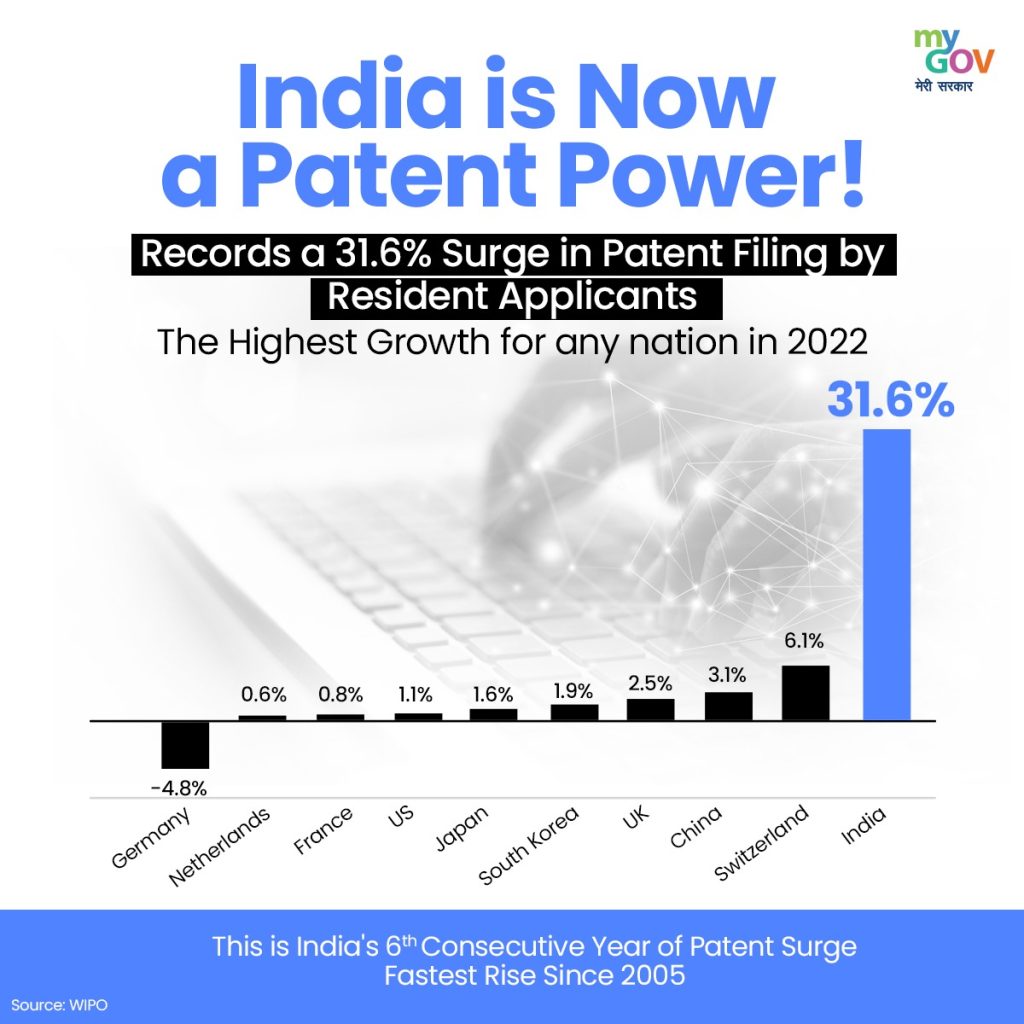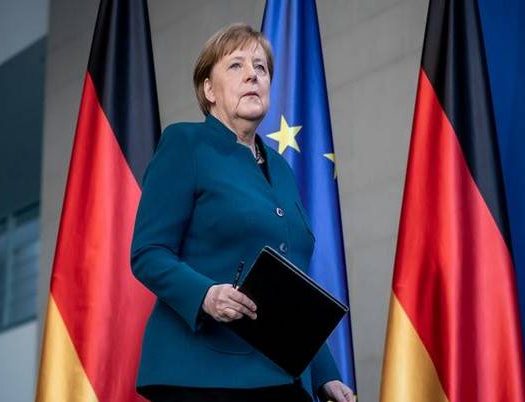For India, this marks the sixth consecutive year of patent application growth, with 2022 registering the fastest increase since 2005.
A recent study by the World Intellectual Property Organisation (WIPO) has revealed that patent applications from India experienced a remarkable 31.6% increase in 2022, reaching a total of 55,718. This achievement marks the sixth consecutive year of growth, highlighting India’s thriving innovation landscape. Despite this significant increase, India’s total patent applications remained considerably lower than those of countries like China, the United States, Japan, the Republic of Korea, and Germany, which maintained their positions as the top patent-filing nations in 2022. For India, this marks the sixth consecutive year of patent application growth, with 2022 registering the fastest increase since 2005.

Notably, 13 out of the top 20 patent offices worldwide received a greater number of patent applications in 2022 compared to the previous year. Globally, innovators submitted a record-breaking 3.46 million patent applications in 2022, marking the third consecutive year of growth at 1.7% over 2021. This positive trend followed a 3% decline in 2019 due to the impact of the COVID-19 pandemic, demonstrating the resilience of the global intellectual property landscape. The substantial growth in patent applications can be attributed to a surge in filings by China, which submitted 33,605 more applications than in 2021. Additionally, India’s intellectual property office contributed significantly with 15,495 additional applications.
South Africa and the European Patent Office (EPO) also played a crucial role in driving global growth with 3,030 and 4,832 additional applications, respectively. In terms of patent applications by area of innovation in large middle-income countries, the following sectors dominated: Brazil excelled in other special machines (8.4% of total published applications), Malaysia in computer technology (9.6%), Mexico in pharmaceuticals (12.1%), and Turkey in medical technology (7.5%). China led the pack with around 1.58 million patent applications in 2022, covering both domestic and foreign jurisdictions. The United States, Japan, the Republic of Korea, and Germany followed with 5,05,539, 4,05,361, 2,72,315, and 1,55,896 applications, respectively.
The report also highlighted India’s remarkable growth in annual trademark applications, which rose from below 100,000 in 2006 to nearly 480,000 in 2022. Brazil and India were the only two offices among the top five to receive more trademark applications in 2022 compared to 2021. An astounding 11.8 million trademark applications, covering 15.5 million classes, were filed in 2022. Notably, the number of classes specified in applications fell by 14.5% in 2022, marking the first annual reduction in application class count since 2009. Indian Prime Minister Narendra Modi celebrated this achievement, emphasizing that the surge in patent applications reflects the nation’s burgeoning innovation spirit.
He shared a link to the WIPO post on social media, highlighting India’s 31.6% growth in patent applications, extending an unmatched 11-year streak. The WIPO report revealed that intellectual property filings have continued to grow despite the challenges posed by the pandemic. Developing countries are increasingly driving innovation and creativity, showing the greatest growth rates. However, uncertainty continues to impact the global innovation ecosystem, with venture capital funding dropping in many parts of the world. The report calls for supporting good ideas that can change the world for the better without compromising on quality. In addition to the remarkable surge in patent applications, the report noted a 14.5% decline in trademark application class counts and a 2.1% decline in industrial design filing activity in 2022, indicating changing patterns in work and life due to the pandemic.
The impressive growth of India’s patent applications underscores the country’s growing innovation prowess and its position as a key player in the global intellectual property landscape. With a focus on supporting innovation and creativity, India is poised to continue its remarkable journey in the world of patents and intellectual property.


